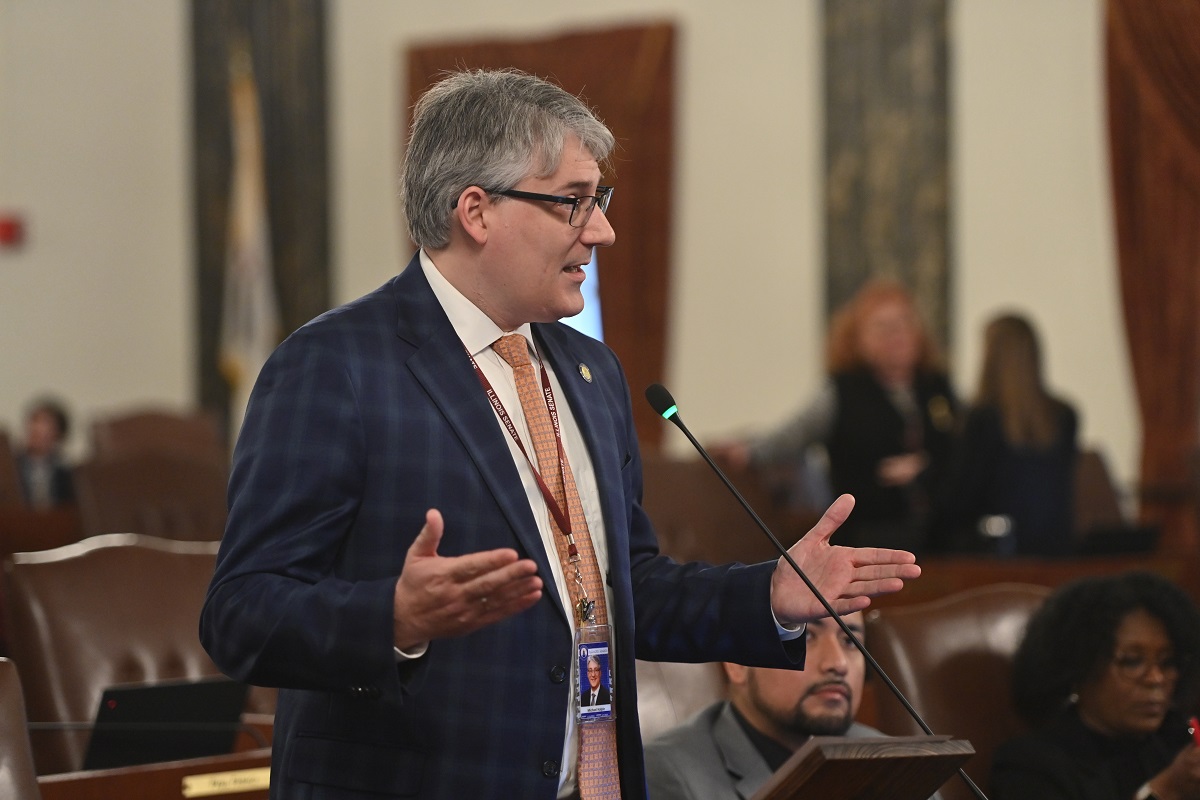- Details
- Category: Press Releases

SPRINGFIELD – State Senator Mike Halpin passed a bill through committee Wednesday that would ensure businesses give their employees mandated human trafficking training.
“This legislation will allow local governments and local law enforcement to keep tabs on businesses to ensure they are giving their employees this crucial training,” said Halpin (D-Rock Island). “We must do everything we can to make sure our communities are safe and combatting human trafficking is a top priority.”
Current law requires certain hotel, restaurant and truck stop employees to go through human trafficking recognition training. Halpin’s bill would allow local government and law enforcement to oversee and issues penalties to those establishments not in compliance with the law. Hotels, restaurants and truck stops are businesses that see a high propensity of human trafficking due to the nature of their business according to the U.S. State Department.
- Details
- Category: Press Releases

SPRINGFIELD – State Senator Mike Halpin has been appointed to the Community Based Corrections Task Force by Senate President Don Harmon.
“I am excited to work with community members and experts to create a justice system that fairly treats people with mental illness, addiction and other vulnerable folks while making our community safer,” said Halpin (D-Rock Island). “This task force will enable us to create a holistic analysis and response to cracks in our justice system.”
The task force was created by legislation from Halpin, which was signed into law by the governor in 2024. The task force’s goals are to assess detention, rehabilitation alternatives and specialty courts in Illinois’ correctional system. Following these assessments, the task force will make recommendations and suggestions to the General Assembly based on their findings.
- Details
- Category: Press Releases

SPRINGFIELD – State Senator Mike Halpin introduced legislation to bring $7.2 million to Western Illinois University to drive new initiatives in innovation, workforce development and economic growth in the Quad Cities.
“Our state must ensure it can continue to fully serve its students and the broader community,” said Halpin (D-Rock Island). “This funding will give WIU the boost it needs to tackle higher education needs in the Quad Cities and beyond.”
Western Illinois University is launching several initiatives to help shape the next evolution of WIU-QC, including growing opportunities for local business through procurement and development assistance and building on programs that will position Western Illinois University to implement the community needs outlined in the recently released Illinois Board of Higher Education (IBHE) “Thrive Quad Cities” report.
“These dollars will allow WIU to step forward,” said Halpin. “We must give the university the tools to enable a stable solution and this funding is the way to accomplish that goal.”
“As a lifelong resident of the Quad Cities, it is an honor to lead the next era of public higher education for our community,” said Dr. Kristi Mindrup, president of Western Illinois University. “An additional $7.2 million investment in Western Illinois University will lead to exciting opportunities in education, engineering, and healthcare that meet the needs of the Quad Cities region and beyond.”
Senate Bill 1308 is awaiting to be heard in the Senate Education Appropriations Committee.
- Details
- Category: News

ROCK ISLAND – State Senator Mike Halpin is collecting store bought or handmade cards for residents in long-term care facilities for Valentine’s Day in order to brighten their day.
“I want to give the community a chance to lift up local seniors’ spirits this Valentine’s Day,” said Halpin (D-Rock Island). “A small gesture like a card can have a big effect on a person’s day.”
Local residents are encouraged to write kind notes and drop them off or mail them to Halpin’s district office, located at 117 E. Main St. Suite 103 Galesburg, IL 61401. He is collecting cards until Feb. 10 and will deliver them to local long-term care facilities.
People with questions can reach out to Halpin’s Rock Island office at (309) 558-3612 or Galesburg office at (309) 297-4483.
More Articles …
Page 9 of 33

